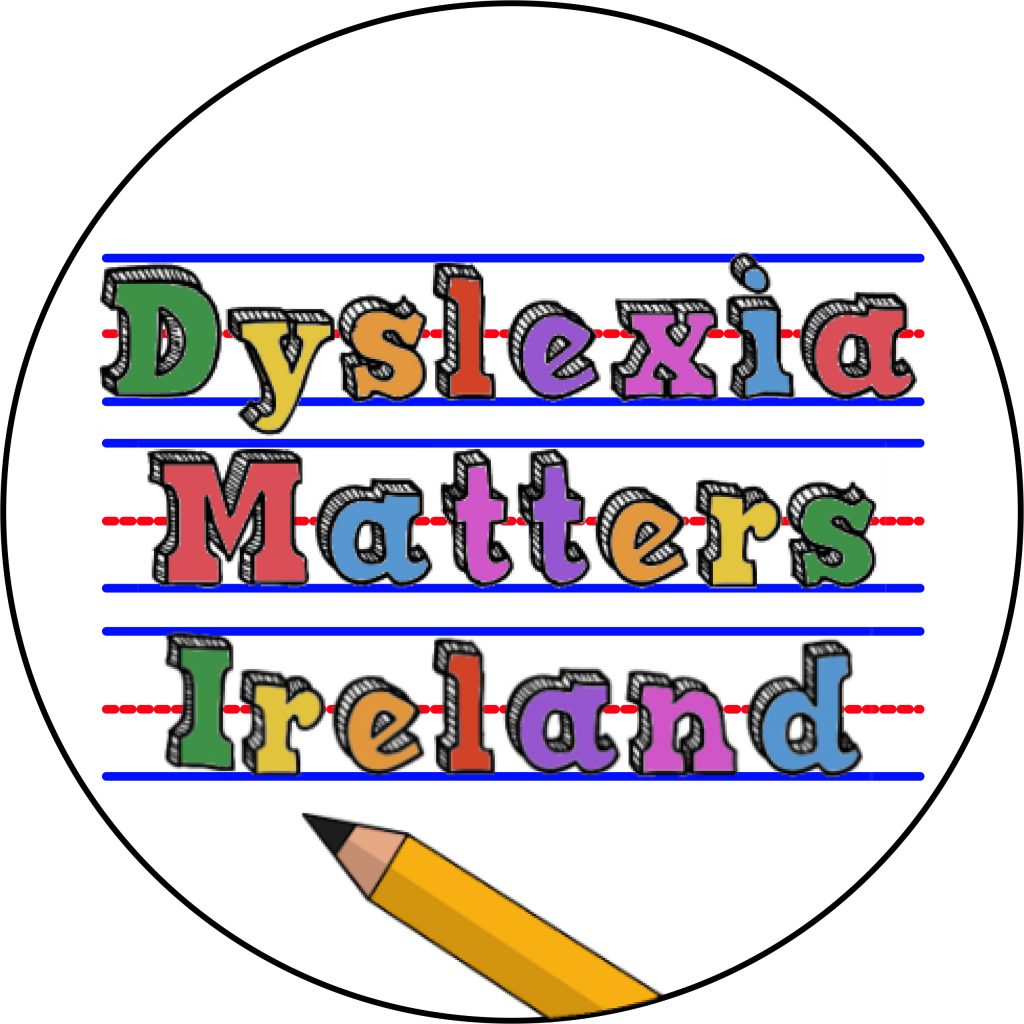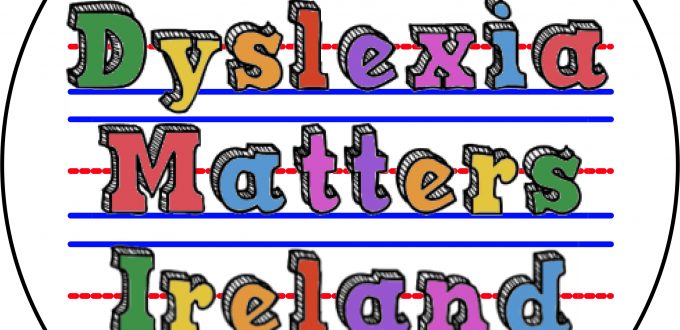What is Dyslexia?
There are many definitions of dyslexia but the one we use at Dyslexia Matters Ireland is the definition by the International Dyslexia Association. They say that dyslexia is characterized by difficulties with accurate and/or fluent word recognition, poor spelling and decoding abilities.
Dyslexia affects between 5-15% of the population (in Ireland we say around 10%). That is 3 in every class of 30 and 70 in a large school of 700 in Ireland. It affects all ages, languages, socioeconomic statuses and countries. There is a strong family link, and it is a lifelong condition. It is said that it is not related to intelligence, however, this is an ongoing debate, but strengths in other areas can highlight this difficulty in literacy. It is more common in boys than girls and it can range from mild to severe. It is underdiagnosed in Ireland so parents and teachers may be unaware that a child has dyslexia. People may not realise they have dyslexia until they are adults. Dyslexia can lead to school refusal, school dropout, mental health difficulties and more. Early intervention is key.
What are the signs of Dyslexia?
If we know the signs of dyslexia, then we are more able to spot it at home or in the classroom. We at Dyslexia Matters Ireland are raising awareness about this in order to give educators and parents the tools to spot it and to give them the knowledge in order to be able to take the next step.

Dyslexia presents differently in everyone, here are some of the main signs to look out for
● Reading well below the expected level for age
● Problem’s processing and understanding what they hear
● Difficulty finding the right word or forming answers to questions
● Problems remembering the sequence of things
● Difficulty seeing (and occasionally hearing) similarities and differences in letters and words
● Inability to sound out the pronunciation of an unfamiliar word
● Difficulty spelling
● Spending unusually long-time completing tasks that involve reading or writing
● Avoiding activities that involve reading (Mayo Clinic, 2022)
Please note that there are many more signs, no one child will have all the signs and many children without dyslexia will have some of the signs.
Parents and teachers often report that dyslexia is a concern but dyslexia was not indicated when a screener was carried out. Screeners are often short - a snapshot in time and the bigger picture may not have been considered. They are a useful tool but cannot diagnose dyslexia. Parents and teachers sometimes believe that because a child can read then dyslexia isn’t present. Remember, it can present in many ways and can range from mild to severe.
If you would like more information on this, we at Dyslexia Matters Ireland run an online course for parents called ‘Querying Dyslexia and the Assessment Process’. Please check out our social media for the next start date.
What is the Next Step?
If the signs of dyslexia are present, the most important thing is early intervention with or without a diagnosis. We often hear of schools and parents waiting. Try not to wait for a diagnosis to intervene as the gap between the typical learner and the atypical learner will probably widen. Systematic, targeted, structured, multisensory teaching can make a huge difference to a young child with dyslexia or any literacy difficulty. Remember that this type of teaching will benefit any child.
As a parent, you are your child’s main advocate, main educator, main support system. You know your child best. Children spend 11% of the year in school. Children with dyslexia may find it difficult to learn in a whole-class setting. Concentration, distractions, the pace of the curriculum, an overloaded curriculum are often mentioned as reasons why children with dyslexia find it difficult to learn in this setting. Be the expert. Knowledge is power. Keep up to date with the ever-changing legislation.

Be aware there is a fine line between helping your child and overloading them. On the other hand, don’t underestimate the power of 5 to 10 minutes of targeted teaching each evening. Little and often is key. Repetition is key. Overlearning is often crucial. Watch out for the gaps in your child’s learning and help to fill in these gaps. The aim is not to add extra work to your child’s workload but rather to teach the material in an effective and multisensory way. If you would like more information on this, we run an online course called ‘Practical Tips and Strategies’. Please keep an eye on our social media for the next start date.
If a parent or teacher is seeking a diagnosis, then it is important to know that a psychologist is the only professional qualified in Ireland at present to assess for dyslexia. The public route is through the school which is known as a NEPS assessment. Schools get a very small amount of these per year and there is usually a large number of children on the list. The reality is that the vast majority of children will not get seen through the public route. Many parents will access the assessment privately by contacting a psychologist themselves. We at Dyslexia Matters Ireland, have the relevant teacher qualification to assess for dyslexia. We can assess for dyslexia in other countries but not here in Ireland. We believe that if teachers could assess in Ireland, then more children would have access to an assessment. This opens up the option of applying for support such as an exemption for Irish, assistive technology such as reading pens, readers and scribes for state exams, lower points when applying to colleges and universities.
Dyslexia Matters Ireland
This blog post is written by the founders of Dyslexia Matters Ireland. We are experienced primary school teachers with several post-graduate qualifications in the area of dyslexia and special education. We are committed to raising awareness about dyslexia. We have trained teachers all over the country and have provided support to hundreds of parents and children.
We offer courses for parents and teachers online, one to one parent consultations, library talks, information talks, and we have recently worked with some of the colleges that are carrying out research in this area. Follow us on our social media account for more information about our upcoming courses.
Find us at www.dyslexiamattersireland.ie or email us at dyslexiamattersireland@gmail.com


